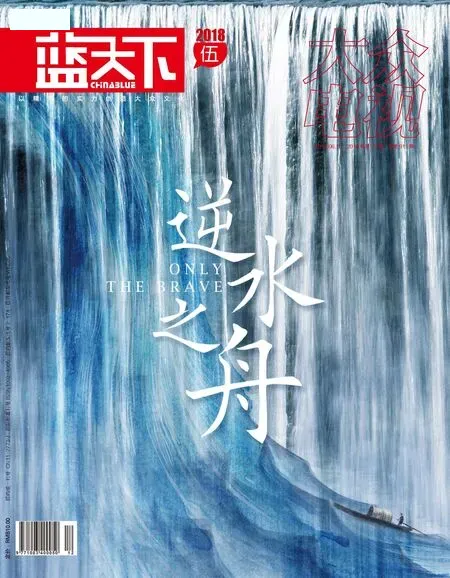As China Dominates the Global Box Office a Look at the Movies Giving Hollywood a Run for Its Money
By Michael Nordine
You’ve probably heard about the highest-grossing film of the year. “Black Panther” has been breaking records since it opened earlier this year,recently surpassing “Titanic” to claim the thirdhighest domestic gross of all time. More surprising are the two films that follow: “Operation Red Sea” and “Detective Chinatown 2,” which have earned $568 million and $531 million worldwide,respectively. The vast majority of those earnings are from their native China, which by certain metrics is now the largest film market in the world.
In February, the People’s Republic set a world record for monthly sales in a single market when moviegoers spent 10.1 billion yuan ($1.6 billion) at the box office. Most theatrical offerings that month were domestic productions, whereas March saw the release of such imports as “Ready Player One,”“The Shape of Water,” and, yes, “Black Panther.” The result: a nearly 50 percent decline in ticket sales.
So what are these movies dominating the Chinese— and, by extension, global — box office? Far and away the most successful is last year’s “Wolf Warrior 2,” which made a massive $874 million in China alone — the second-highest gross in a single market of all time after “The Force Awakens.” Directed by and starring Wu Jing, the action film came with a provocative poster showing Wu’s character giving the middle finger with an “I fight for China” patch affixed to his uniform. Under that lewd gesture is a tagline: “Anyone who offends China, no matter how remote, must be exterminated.”
“Wolf Warrior 2” hasn’t held its box-office record for long, and neither did its predecessors. When “The Mermaid” was released in early 2016, for instance, it quickly became China’s most successful film of all time. Its financial impact proved more memorable than the movie itself: A romantic fairy tale with a heavy-handed environmental message and distracting CGI, it traded in slapstick humor and surprisingly graphic man-on-mermaid violence that did little to advance its loveydovey underpinnings.
It’ll take a lot to dethrone “Wolf Warrior 2,” but recent history suggests its days are numbered. That these records are being set and broken at such a rapid pace is clear evidence that the Chinese box office is a force to be reckoned with; the question now is how much longer it can continue to grow before inevitably plateauing.
There’s more than audience taste at work, of course. China regulates the number of foreign films that can play in theaters at any given time. As of 2016, there are more screens in China than there are in America, and box-office revenues have increased 144 percent there since 2012. (America has seen a six percent increase in the same period, though it obviously started out much higher.)
Thirteen of the 20 highest-grossing movies in Chinese history are domestic productions; the top four — “Wolf Warrior 2,” “Operation Red Sea,” “Detective Chinatown 2,” and “The Mermaid” — were all released within the last two years. The foreign films that do perform well are a mixed bunch, from two “Transformers” and“Fast and Furious” entries apiece to “Zootopia,” “Avengers: Age of Ultron,” and, oddly enough, “Warcraft” (which made a paltry $47 million in America compared to its$213 million take in China).
In China, the ideals of the American Dream are paling into insignificance as the country’s self-styled Chinese Dream produces the growing wealth and status of large numbers of people while promulgating different values: collective effort, patriotism,and self-sacrifice for the cause of national rejuvenation.
For obvious reasons, these films have done a better job of capturing the popular imagination in China than Hollywood exports. What they haven’t yet done is replicate that success abroad. China may soon be the world’s biggest market, but it’s still only one market.

